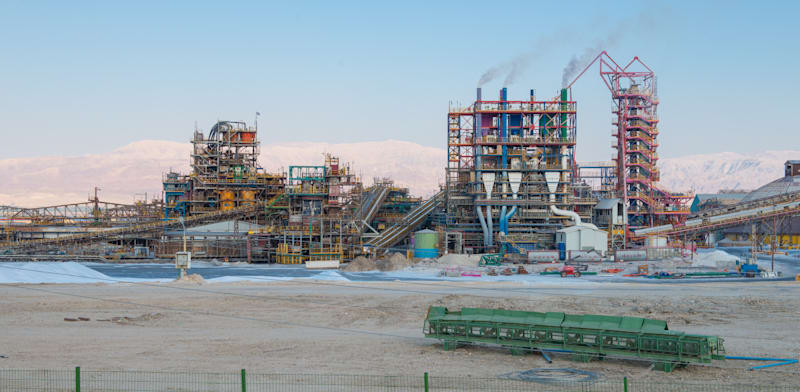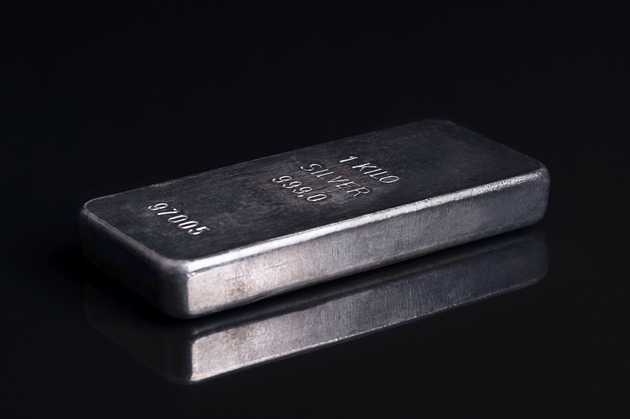The Israeli government concession for Dead Sea minerals given to ICL (TASE: ICL: NYSE: ICL) (formerly Israel Chemicals) in 1961 will be subject to a new tender in the coming years, which will anchor environmental protection and significantly increase the government’s take to 50% by adding the Sheshinsky tax. Compromises agreed by ICL have paved the way for a new tender to be issued for Dead Sea minerals. On news of ICL’s agreement, it share price fell 15% today on the TASE.
At this stage, many of the obstacles that have prevented the dramatic change so far have been removed, and the initial selection within the tender process could begin as early as 2026. By 2030, the Dead Sea concession could be in the hands of a new company.
ICL said: “We will cooperate fully with the tender process.”
The Dead Sea concession, which was awarded to ICL in 1961, was extended when the company was privatized in the 1990s. The concession will end in 2030, as defined by the Ministry of Finance in a document of principles published last year and described as a “historic opportunity” to change the terms of the tender. This, while responding to some of the criticism leveled at the concession over the years, that it does not generate enough royalties for the state, and damages the environment of the Dead Sea, which is a unique natural area that is also important in terms of environmental quality and tourism.
The new concession will allow the continued extraction of minerals from the Dead Sea, such as bromine, potassium and magnesium, in a way that is considered one of the cheapest and most efficient in the world, as there is no need to excavate them from the ground, but rather evaporation of the water is sufficient to extract them.
However, a number of significant obstacles stand in the way of a new tender when the concession ends in 2030, and it now appears that most of them have been removed: According to the terms of the current concession, in any future concession, the Dead Sea Works (owned by ICL) is guaranteed a right of first refusal at any price. This means that against any bid submitted by a new bidder, the Dead Sea Works will be able to make an identical bid and win the tender. Now, it appears that ICL has waived this right.
Another issue has been a compromise on the value of assets held by ICL, such as the physical equipment used to extract minerals from the Dead Sea. While ICL initially claimed they were worth as much as $6 billion, it has now been agreed that only its investment will be recognized, less its actual value in use, bringing the value down to $2.54 billion.
RELATED ARTICLES
ICL forms lithium iron phosphate venture for battery market
ICL signs $170m Chinese fertilizer deal
ICL buys US co Custom Ag Formulators for $60m
ICL has also agreed to transfer all the knowledge it has gained in an orderly manner, including relationships with suppliers and customers. The money held by ICL for employees pensions and benefits, most of which will probably be transferred to a new franchisee, will also remain within the Dead Sea factories.
These are significant compromises by ICL in favor of the state, and it is not clear what the company received in return. ICL said the agreement “Will remove major uncertainty and risks surrounding the end of the concession, and will give the company certainty regarding the value of the concession assets and timing of the payment for them, thus allowing the company to plan and prepare for the coming years and the end of the concession period.”
Ministry of Finance wants to issue a tender soon
The legislation for the new tender will stress environmental quality, as well as the land and planning in the area around the Dead Sea factories. The state’s share will also increase significantly, from 34% to 50%, with the application of the “Sheshinsky tax” on natural resources. Some of the money will go into the sovereign wealth fund, similar to the collection of excess profit tax from natural gas companies today, and some of it will go directly to the state budget. But at this stage it is still unclear what the exact division will be.
The current concession ends in 2030, and the Ministry of Finance wants to issue a tender soon. The legislation that will create the new concession is expected to be tabled in the Knesset in the coming weeks, and environmental organizations are expected to make their comments during the legislative process.
The hope is that an initial screening of the companies that will bid to replace ICL at the profitable Dead Sea Works will be carried out by mid-2026.
ICL itself will also likely compete in the tender, and in its announcement to the TASE it explicitly stated that it is the “best candidate” to operate the concession. But this time it will have to do so in competition with other bidders for one of Israel’s most major natural resources.
Responses
ICL said, “In order to create certainty for the benefit of all stakeholders, while considering all regulatory and business factors, the company decided to sign a document of principles with the Ministry of Finance regarding the value of the assets, in accordance with the provisions of the Concession Law. This agreement allows the company to examine the new concession option against other business alternatives, in a way that will provide value to the various stakeholders. As a company that possesses the most in-depth knowledge, experience, and understanding of the assets and operations, we believe in our ability to continue to develop them for the benefit of the state and the public. However, in the event that the terms of the new concession are not economically viable for the company, not to mention other companies, we will consider competing in the tender.”
Lobby 99, which promotes the interests of the public in the Knesset, said. “The path to a competitive tender for the new Dead Sea concession goes through the cancellation of ICL’s right of first refusal on the next concession, and this is a necessary condition for a competitive tender. At the same time, it must be ensured that if the full agreement is signed, ICL will fulfill all its obligations, for example regarding the transfer of full information and the implementation of the salt harvesting agreement – a necessary step to advance the competitive process. We will continue to work and push for the creation of a better concession that includes increased environmental responsibility and the implementation of the ‘polluter pays’ principles; increasing the state’s share of profits; and increasing transparency. Unfortunately, ICL’s history, as a centralized and powerful entity, requires that the implementation be scrutinized under a magnifying glass.”
The Movement for Quality Government’ said, “We welcome the removal of ICL’s right of first refusal and the opening of the concession to fair competition. At the same time, the movement insists that care must be taken and that the tender be completely transparent, undergo a comprehensive public hearing before its final publication, and be truly open to the general public and potential competitors. The government must ensure that the terms of the tender do not give ICL an unfair advantage due to its existing familiarity with the system, and that every potential competitor receives equal access to the required information.”
Published by Globes, Israel business news – en.globes.co.il – on November 6, 2025.
© Copyright of Globes Publisher Itonut (1983) Ltd., 2025.






















